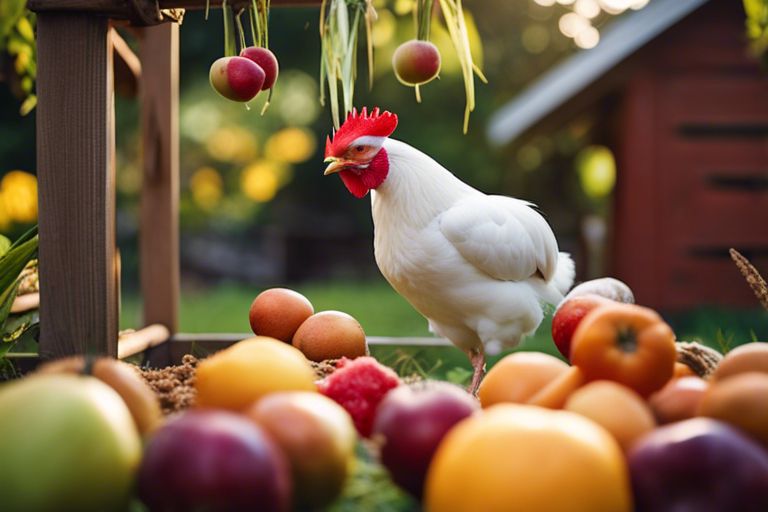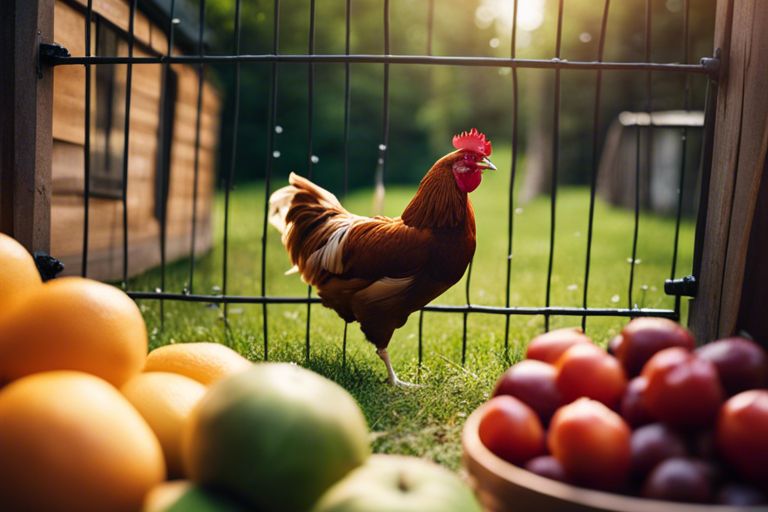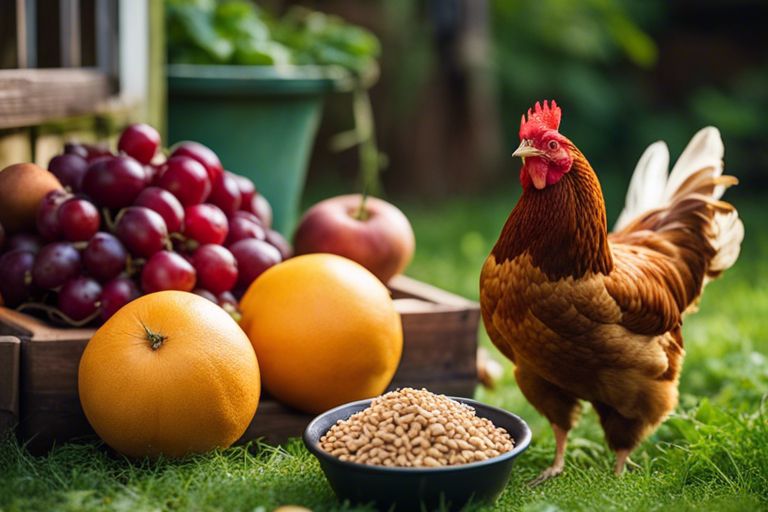It is crucial to understand the significance of providing proper nutrition for your chickens in order to ensure their health and well-being. Just like any other living being, chickens require a balanced diet to thrive and stay healthy. By offering them the right mix of nutrients, vitamins, and minerals, you can help prevent diseases, promote egg production, and support overall growth and development. In this blog post, we will explore the vital components of a chicken’s diet, common nutritional deficiencies to watch out for, and tips on how to ensure your feathered friends are getting the nourishment they need to lead a happy and healthy life.

Essential Nutrients for Chickens
Macronutrients: Protein, Carbohydrates, and Fats
While chickens require a balanced diet to stay healthy, macronutrients play a crucial role in their overall nutrition. Protein, carbohydrates, and fats are vital components that provide energy and support various bodily functions in chickens. Protein is necessary for muscle development and egg production, carbohydrates supply energy for daily activities, and fats help with insulation and the absorption of fat-soluble vitamins.
Micronutrients: Vitamins and Minerals
On the other hand, micronutrients, such as vitamins and minerals, are equally important for the well-being of chickens. These vital nutrients play specific roles in maintaining overall health, from boosting the immune system to supporting proper bone formation and eggshell quality.
Macronutrients comprise the bulk of a chicken’s diet, but it is the micronutrients that ensure all bodily functions are working effectively. Vitamins like A, D, E, and K are crucial for vision, bone health, reproductive success, and blood clotting in chickens. Minerals such as calcium, phosphorus, and potassium are necessary for strong bones, muscle function, and overall growth and development.

Feeding Practices for Optimal Health
Life Stage Nutritional Requirements
To ensure the optimum health and productivity of your chickens, it is crucial to be mindful of their specific nutritional requirements at different stages of life. Young chicks, for example, need a higher protein content in their feed to support their growth and development, while laying hens require a diet rich in calcium to support the production of strong eggshells. By understanding and catering to these specific needs, you can ensure that your chickens thrive and lead healthy lives.
Considerations for Free-Range versus Conventional Systems
Free-range and conventional systems offer different environments and feeding practices for chickens. In free-range systems, chickens have access to outdoor space where they can forage for insects and plants, leading to a more diverse diet. However, this can also result in variations in nutrient intake compared to conventional systems where chickens are fed a formulated diet. It is necessary to consider the pros and cons of each system and tailor your approach to meet the specific needs of your flock.
Common Nutritional Deficiencies and Their Impact
Identifying Deficiency Symptoms
Impact: Proper nutrition is crucial for the health and well-being of chickens. Identifying deficiency symptoms early on is crucial to address the issue promptly. Common signs of nutritional deficiencies in chickens include poor growth, feather abnormalities, decreased egg production, weak eggshells, and general lethargy. By closely monitoring your flock and being aware of these symptoms, you can take action to prevent further complications.
Preventative Measures and Remedies
Deficiency: To prevent nutritional deficiencies in chickens, a balanced and varied diet is key. Ensure that your flock has access to a high-quality commercial feed specifically formulated for their stage of life. Additionally, supplement their diet with fresh greens, fruits, and vegetables to provide crucial vitamins and minerals. If deficiencies are detected, consult with a veterinarian to determine the best course of action, which may include dietary supplements or changes in feeding practices.
For instance, adding a calcium supplement to the diet can help prevent issues like weak eggshells and skeletal deformities in layers. Similarly, providing access to grit can aid in digestion and prevent nutrient malabsorption in chickens. By taking proactive measures and addressing deficiencies promptly, you can ensure the health and productivity of your flock.

Advancements in Chicken Nutrition
The Role of Probiotics and Prebiotics
Despite the traditional focus on macronutrients for chicken diets, the emerging field of chicken nutrition has shed light on the significant role of probiotics and prebiotics in maintaining poultry health. These beneficial microorganisms play a crucial role in improving gut health, enhancing nutrient absorption, and bolstering the immune system of chickens.
Innovations in Feed Development and Composition
Any recent advancements in feed development and composition have revolutionized the way we approach chicken nutrition. With a better understanding of the nutritional requirements of chickens, feed manufacturers are now able to tailor feed formulations to meet the specific needs of different poultry breeds and production stages.
Composition of feeds now includes a precise balance of protein, carbohydrates, fats, vitamins, and minerals to support optimal growth, egg production, and overall health. The use of novel ingredients, such as insect-based proteins and algae, has also been introduced to enhance the nutritional profile of chicken feeds while ensuring sustainability in poultry production.
To wrap up
Ultimately, proper nutrition is crucial for the overall health and productivity of chickens. Providing a balanced diet ensures that chickens receive the necessary nutrients to support their growth, egg production, and immune system. Without adequate nutrition, chickens can suffer from various health issues, reduced egg production, and even premature death. By understanding the nutritional needs of chickens and offering a well-rounded diet, poultry owners can help their flock thrive and lead healthy, happy lives. Note, a well-fed chicken is a happy chicken!
FAQ
Q: Why is proper nutrition important for chickens?
A: Proper nutrition is crucial for chickens as it ensures their overall health, immunity, and productivity.
Q: What are the key nutrients that chickens need in their diet?
A: Chickens require a balanced diet that includes proteins, carbohydrates, fats, vitamins, minerals, and water.
Q: How does proper nutrition impact egg production in chickens?
A: Adequate nutrition is directly linked to the quality and quantity of eggs produced by chickens.
Q: What are the consequences of poor nutrition in chickens?
A: Poor nutrition can lead to stunted growth, weakened immune system, reduced egg production, and various health issues in chickens.
Q: How can I ensure that my chickens are getting proper nutrition?
A: You can provide a well-balanced commercial feed, fresh water, and access to grit and oyster shells for calcium supplementation.
Q: Are there specific dietary requirements for different stages of a chicken’s life?
A: Yes, the nutritional needs of chickens vary depending on their age, such as chicks needing higher protein levels for growth.
Q: What role does hydration play in the overall health of chickens?
A: Proper hydration is crucial for digestion, temperature regulation, and overall health of chickens, making access to fresh water crucial.











